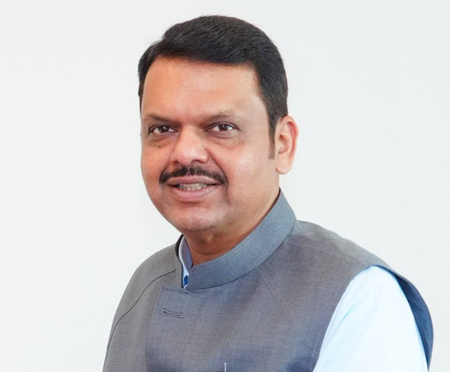
Mumbai, June 17 (IANS) The Maharashtra Cabinet on Tuesday approved the construction of Automatic Weather Stations (AWS) under the central government’s WINDS (Weather Information Network Data System) project at the gram panchayat level and also extended the Mahavedh project by five years.
“The project is important for providing accurate weather information to all the villages in the state and for providing weather-based agricultural advice and guidance to the farmers. In this project, an automatic weather station AWS has been set up at the revenue division level in the state. These stations provide information on weather parameters like temperature, rainfall, relative humidity, wind speed and direction. This information is used by the Relief and Rehabilitation Department POKRA Project, Maharashtra Remote Sensing Application Centre (MRSAC), Nagpur, Sarva Krishi Vidyapeeth, Krishi Vigyan Kendra and other research institutions,” said the government release.
According to the government release, the information will also be used to provide benefits of Pradhan Mantri Fasak Bima Yojana (PMFBY) and Weather Based Fruit Crop Insurance Scheme (RWBCIS). Skymet Weather Services Pvt Ltd has been appointed as the service provider for the implementation of this project.
Automatic weather stations have already been set up at the revenue division level under the Mahavedh project, but if they are established at the Gram Panchayat level, meteorological information will be available in relation to natural disasters like drought, fire, flood, hailstorm, cloudburst, cold wave and severe cold to the farmers. The Agriculture Department will act as the nodal department for Mahavedh.
Meanwhile, the Cabinet also approved the implementation of the VISTAAR initiative to make agricultural extension services more effective and farmer-centric. Through this initiative, farmers will be given personalised advice in Marathi using generative AI and emerging technologies. Under this initiative, the help of artificial intelligence-based chatbots, voice assistants will be taken in Marathi.
Through this, information on crop production, disease and pest management, weather forecast, market prices and government schemes will be provided. Simulation tools useful for farmers will be developed. Along with this, it will be linked to national platforms like Agristack and Bhashini. Training will be provided to field extension workers on the use of artificial intelligence.
“A state-wide Traceability and Quality Certification platform based on AI, Blockchain and QR-code technology will be set up to ensure food security, transparency in the supply chain, food quality assurance and global market access for agricultural products. This platform will create a digital and geo-tagged record of fertilisers and pesticides applied to crops, farming practices, post-harvest processing and quality certification during the journey from farm to consumer,” said the government release.
Initially, this will be launched for select exportable crops and will be expanded to other crops in a phased manner. Farmer Producer Organisations, exporters, pack houses, quality certification agencies, logistics and e-commerce platforms will be connected to this system. This will include IoT and mobile-based traceability, verification of certified claims through artificial intelligence, QR code generation, and compliance with international standards (APEDA, Codex, EU Farm-to-Fork). This platform will provide farmers with better prices, increase reliability in exports and increase acceptance in local and global markets. Training on AI/ML and agricultural technology will be provided in State Agricultural Universities, Technical Institutes and research partners.
Special AI training toolkits will be prepared for officials in the agriculture department. Hands-on training, digital tools and help desks will be made available for farmers and farmer producer organisations on the use of AI.
The quality and usefulness of training will be enhanced by partnering with technology institutions and the industry sector. It will be ensured that the training and use of AI are relevant and useful to the local needs by taking feedback from farmers from time to time.
–IANS
sj/dan



